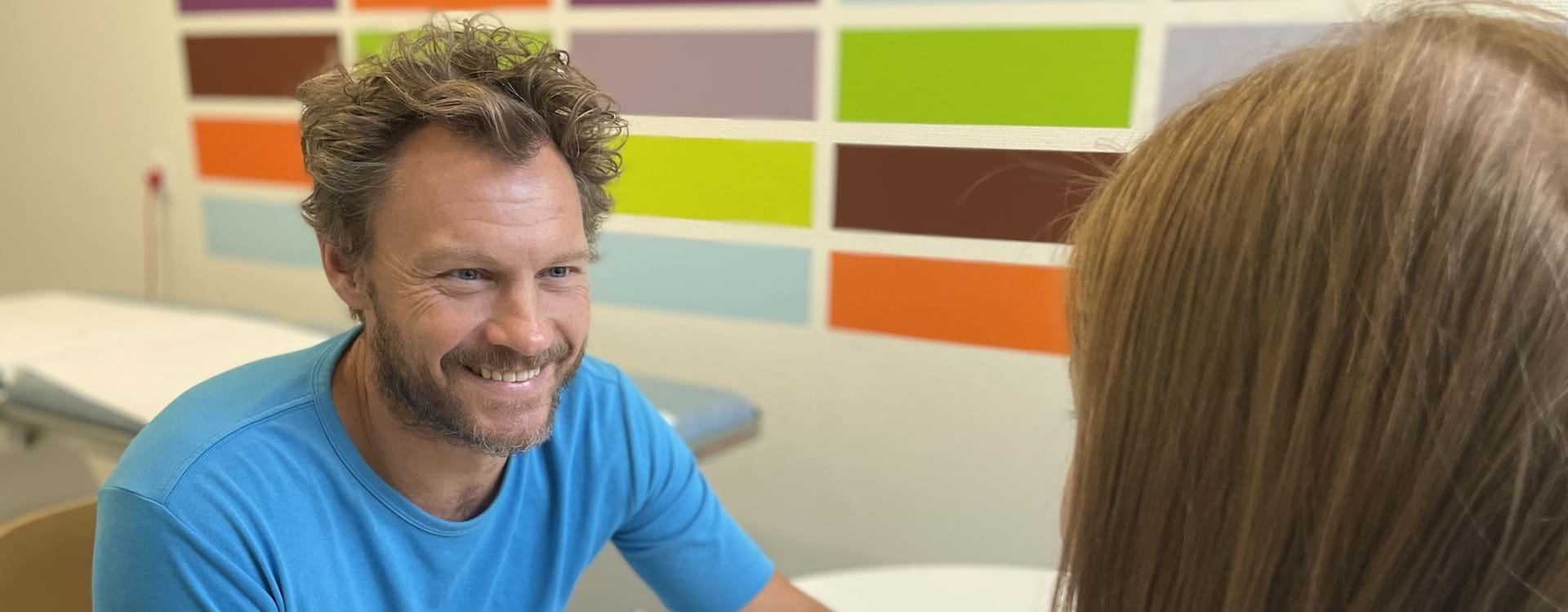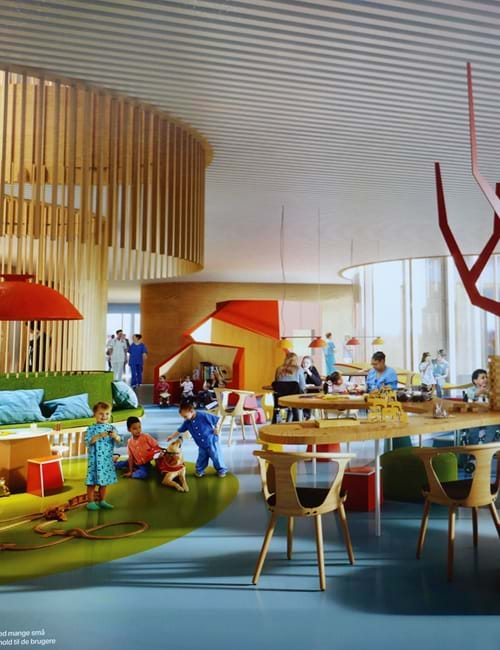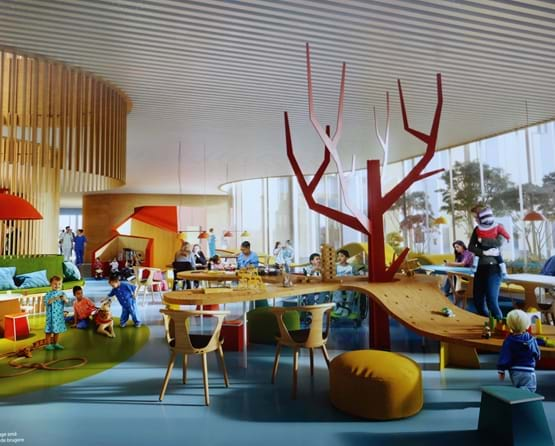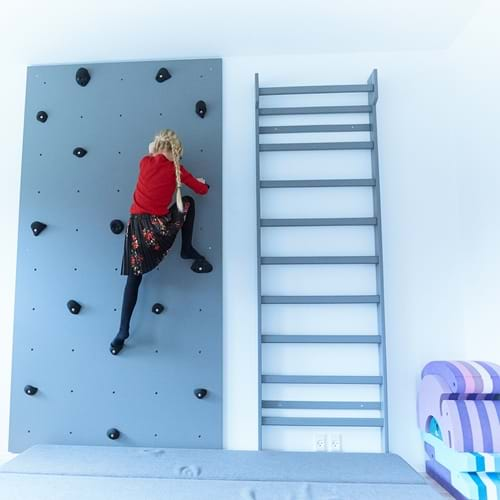New clinic will support adolescents and young adults with CP
A clinic for adolescents with CP will ensure that they are not ‘lost’ in the system when they leave the paediatric department.
There is currently no coordinated treatment for adolescents with CP in Denmark; young adults over 18 often end up ‘falling between the cracks.’ A new transition clinic based at the new Mary Elizabeth’s Hospital at Rigshospitalet aims to change this.
Even though CP sets in early in life, adults with CP also require treatment and support. Only about 11 % of adolescents with CP manage to become self-supporting move in with a partner and become a parent.
Many of those who succeed in finding work also leave their jobs more quickly that other young adults. This often leads to adolescents with CP generally becoming more socially marginalized than other adolescents – even though most of them have a relatively high functional level.
Professor and physical therapist Jakob Lorentzen believes that this needs to change. He has taken the initiative to start the first and only transition clinic for adolescents with cerebral palsy: the CP-UNG clinic.
” The teenage years seem to be a special time for young adults with CP, where persistent support and encouragement from other adults to keep going can make a big difference. I believe that if we intervene early in adolescence, we can ensure to a much greater degree that young adults get the help and support they need, so they can get educations and jobs, start a family, and be self-supporting” explains Jakob Lorentzen.
The goal of the transition clinic is to ensure that people with CP are taken care of when they become adults and are no longer affiliated with a specific clinic; there are currently no adult CP clinics in Denmark, which makes it difficult for them to get the support and help they need from specialists and the municipality.
One particular challenge for the transition from childhood to adulthood is that there is seemingly a loss of function already during the teenage years. This has far-reaching consequences for adulthood, explains Jakob Lorenzen:
”Aside from the usual ’teenage lethargy,’ some adolescents with CP also experience that their ability to walk becomes gradually worse, and many experience excessive fatigue that can become so pronounced that it becomes difficult to live like other young adults without CP. This can affect education, recreational activities, student jobs, and more. The ‘teenage lethargy,’ loss of function, and fatigue unfortunately have greater consequences for people with CP than for other young adults, because people with CP spend more energy on everyday activities than others,” he explains.
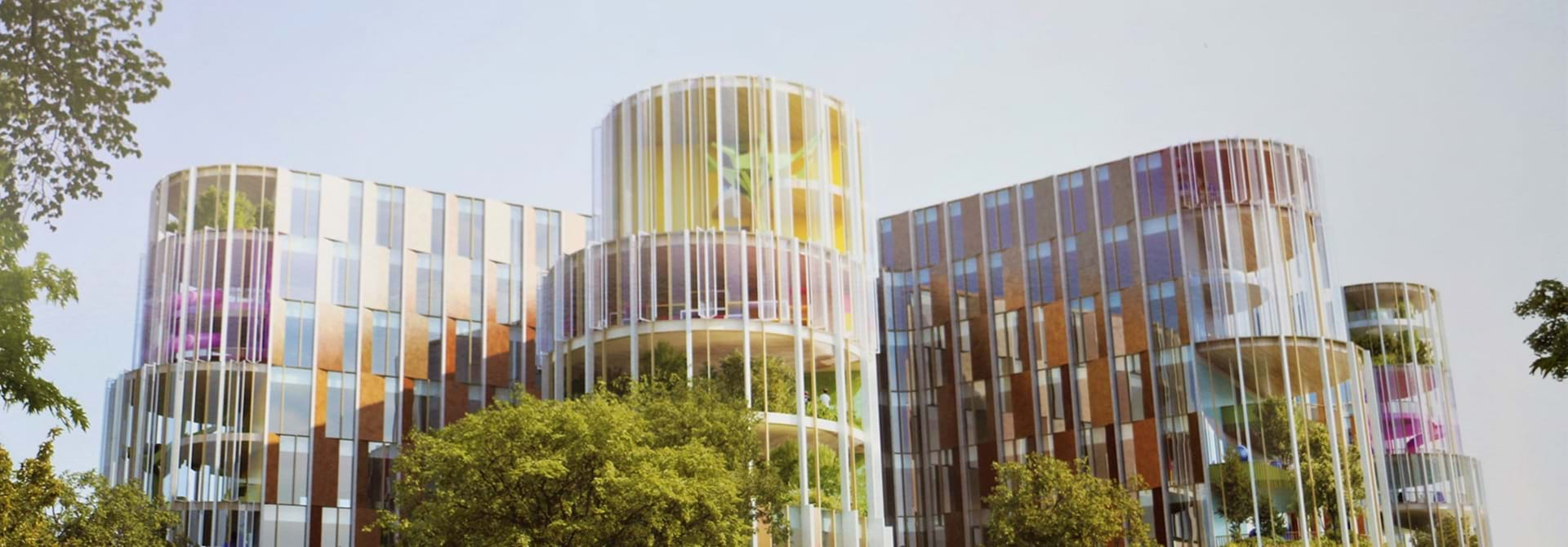
The transition clinic will be a part of the new paediatric hospital, Mary Elizabeth’s Hospital, which is part of Rigshospitalet. It is expected to be finished in 2026. PHOTO: Archive.
Resources for adults are important
The new transition clinic for adolescents with CP will be established at Rigshospitalet in the Department of Paediatrics and Adolescent Medicine and will be part of the new Mary Elizabeth’s Hospital – Rigshospitalet for Children, Teens, and Expecting Families. The clinic will initially be established as a research project to assess the value of the intervention. This will provide a foundation for planning a nation-wide initiative.
The Elsass Foundation is supporting this project with 8 million DKK. Last year, the Foundation also supported a similar initiative at the Hammel Neurocenter in central Jutland aiming to ensure better resources for adolescents and adults.
” In the Foundation we work towards ensuring the best possible quality of life for people with CP of all ages. It was an obvious choice for us to support a project aiming to help the many adolescents and adults with CP who have not previously been offered systematic follow-up care. We also hope that this will lead to new and improved specialized knowledge about adults with CP,” points out Peter Lindegaard, CEO of the Elsass Foundation.
Focus on collaboration with municipalities
In the transition clinic, adolescents will be offered an initial assessment at the age of 15. The assessment team will be interdisciplinary, consisting of a physical therapist, doctor, occupational therapist, a nurse, and potentially a neuropsychologist. The initial assessment will provide a basis for creating a rehabilitation plan, which will be reevaluated at every follow up meeting in close collaboration with the local municipality.
Collaboration with the municipalities is essential if we want to make this transition work, and it will be a special focus point in the CP-UNG clinic, explains Jakob Lorentzen:
”The municipalities have a lot of good programs, but many adolescents with CP don’t make use of them, either because they don’t know they exist, aren’t made aware of them at the right time, or because they aren’t motivated to use them. The transition clinic will support adolescents with CP and ensure that they get the benefits of all the programs that already exist and become motivated to make use of them,” explains Jakob Lorentzen.
The transition clinic will become the link between adolescents and the treatment and training programs in the municipalities. A goal of the clinic is to develop a method that ensures a good collaboration across sectors and motivate adolescents with CP to be as active as possible.
“We want to ensure that the adolescents get the optimal counseling from specialists, and that this counseling is connected to the programs and possibilities for support that are available in each municipality,” Jakob Lorentzen explains.
Precedent for the future
The 6-year research project will show whether the new transition clinic is a success and can create a precedent for similar initiatives in other regions and municipalities.
Altogether, 125-150 children will be invited to participate over the next 6 years and will receive a course of treatment in the clinic with support from the municipality, though a municipality contact person. Jacob Lorentzen and his team hope that they can make this plan work in collaboration with the municipality to make sure that adolescents and young adults get as much support as possible and can make use of the municipality programs that currently exist.
“Aside from the fact that it makes sense from a health and medical standpoint, I am also sure that optimizing the collaboration between the sectors will lead to a better use of the existing resources and a better life for this group of people in the long term,” concludes Jakob Lorentzen.
